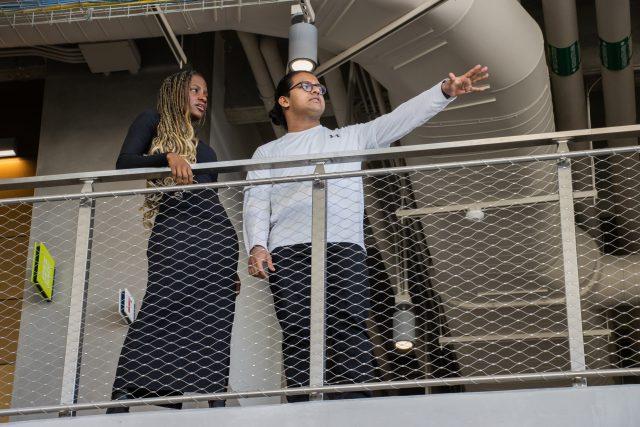Jordyn Turpitt
reporter
Most people want to work for a company that treats its employees well, and NE business instructor Rachel Allmon thinks sometimes that means students will have to choose a job that pays less to be in a healthy work environment.
Allmon and NW success coach Sara DeVries offered tips on how students can identify good work places from the not so good as well as pointers for a good workplace experience.
“What makes for a good culture is when an organization places value on the individual employee and does everything within its power to ensure that employee needs are met by linking time-in-service, experience and education to pay,” Allmon said. “Providing an ethical, equitable and inclusive environment incentivizes good workplace behaviors.”
Many components indicate a good company culture, including good management and good communication, DeVries said.
“Good management builds employee morale and produces a low turnover rate and customer and employee satisfaction,” she said. When there is little respect among employees, supervisors and managers, employees tend to have few goals and lack motivation, and a high turnover rate is common.
“In my case, in a former job, the work culture had begun to affect my health,” Allmon said. “My doctors gave me an ultimatum, quit or talk to your boss.”
By communicating her needs to her supervisor, things gradually improved in the workplace for Allmon.
“Communication is key to success,” Devries said. “Effective communication is important for every company and at every level of that company and typically produces more positive outcomes when doing so.”
People will have an overall better experience if they take into consideration the company culture, she said..
DeVries said she goes into jobs thinking long term and wanting to see room for growth in the company.
She wants to be sure that employees and supervisors are treating each other with respect and supervisors seem to care about their employees and that helps her determine if the position is the right fit.
On the flip side, undue emphasis on competition for positions can produce a bad work culture.
“The least enjoyable aspect of an organization’s culture that I have experienced has been a culture where profit trumps relationships and position trumps competency,” Allmon said.
DeVries values the growth potential of a company, how respected they are by people, company encouragement of moving up, and a manager or supervisor willing to help the team succeed.
“The reward of investing in yourself through education, certificates and experience is having power to choose who, what and where to share your talent,” Allmon said.
Some questions an interviewee can ask a company are “How does this position help the organization achieve its overall goals?” and “Will I be encouraged to take initiative and provide suggestions regarding my work or related areas?” and “How many years does it take to become vested within your organization and what benefits are associated with time-in-service?” Allmon said.
No matter what industry a person will go into, it’s important that the organization is centered on employees and service, Allmon said.
“I look for diversity and inclusiveness of their workforce as demonstrated by knowledge, expertise, and demographics,” she said.
Both Allmon and DeVries warn against disclosing too much personal information to colleagues or a boss.It is important to keep personal lives separate from work lives because it can otherwise lead to many problems.
NW student Carlos Monsante said he has good relations with his co-workers, and it makes his job more enjoyable.
“A person’s work environment has a tremendous effect on the quality of their work,” Monsante said.


































